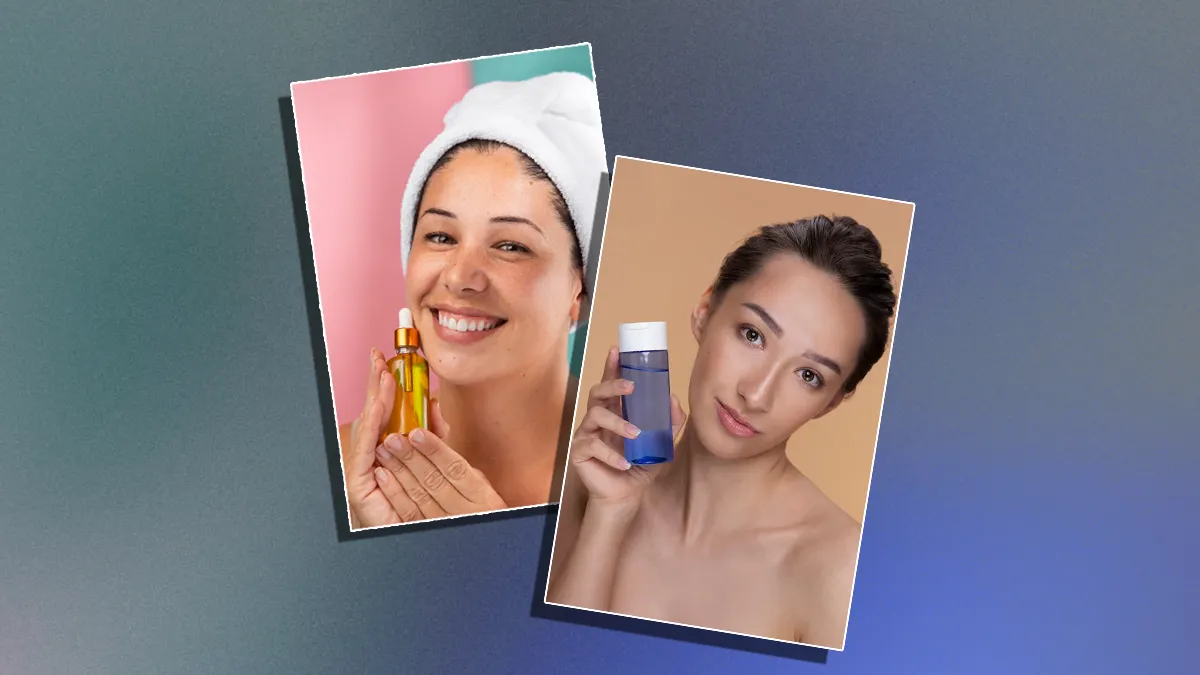
Removing makeup at the end of the day is one of the most important steps in a good skincare routine. But with so many options available, it can be confusing to choose the right product. Two of the most popular choices are micellar water and cleansing oil. While both are designed to clean your skin and remove makeup, they work in slightly different ways and suit different skin types. Let’s take a closer look.
Micellar water is a gentle, water-based cleanser made up of tiny cleansing molecules called micelles. These micelles attract dirt, oil, and makeup from the skin without the need for harsh rubbing.

It is often used as a quick and easy way to cleanse the skin, especially when you don’t have time for a full skincare routine. Most formulas are fragrance-free and suitable for sensitive skin.
Micellar water is best for light makeup, sunscreen, and everyday impurities.
Don't Miss: Glutathione vs. Vitamin C: Which Antioxidant Reigns Supreme for Skin Glow?
Cleansing oil is an oil-based formula that helps dissolve stubborn makeup, sunscreen, and dirt. It works on the principle of “like attracts like” – meaning oil helps break down oil-based products like foundation, mascara, and sunscreen.

When applied, it feels rich and smooth, and when rinsed with water, it turns milky, leaving the skin soft and clean.
Don't Miss: Shaving vs Waxing Pubic Hair: Which One Is Better For You?
Cleansing oils are often the first step in a double cleansing routine, followed by a water-based cleanser.
Here’s a simple comparison to help you decide which one works best for you:
Feature |
Micellar Water |
Cleansing Oil |
Makeup Removal Power |
Best for light or everyday makeup |
Best for heavy and waterproof makeup |
Skin Type Suitability |
Oily, acne-prone, or sensitive skin |
Dry or combination skin |
Usage |
No rinsing required |
Should be rinsed off after use |
Finish |
Leaves skin fresh and non-greasy |
Leaves skin soft, hydrated, and nourished |
Best For |
Quick cleansing or travel |
Deep cleansing and double cleansing routines |
Both micellar water and cleansing oil have their own benefits, and the right choice depends on your skin type and makeup habits. If you wear light makeup and want something quick and gentle, micellar water is perfect. But if you often use waterproof or heavy makeup, cleansing oil is the better choice. For many people, using both in different situations works best.
Image Credits: Freepik
If you liked this story, then please share it. To read more such stories, stay connected to HerZindagi.
Also watch this video
Herzindagi video
Our aim is to provide accurate, safe and expert verified information through our articles and social media handles. The remedies, advice and tips mentioned here are for general information only. Please consult your expert before trying any kind of health, beauty, life hacks or astrology related tips. For any feedback or complaint, contact us at compliant_gro@jagrannewmedia.com.